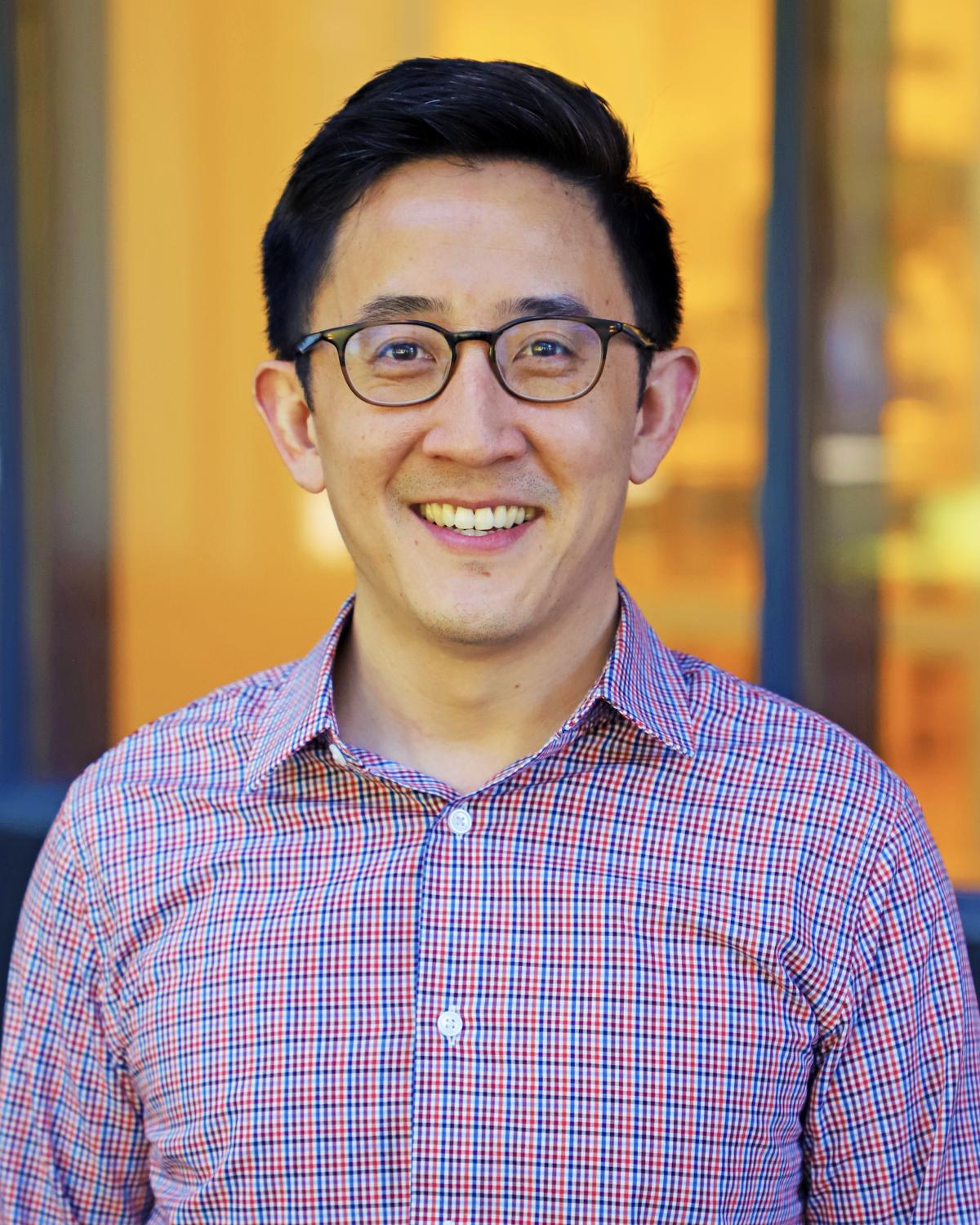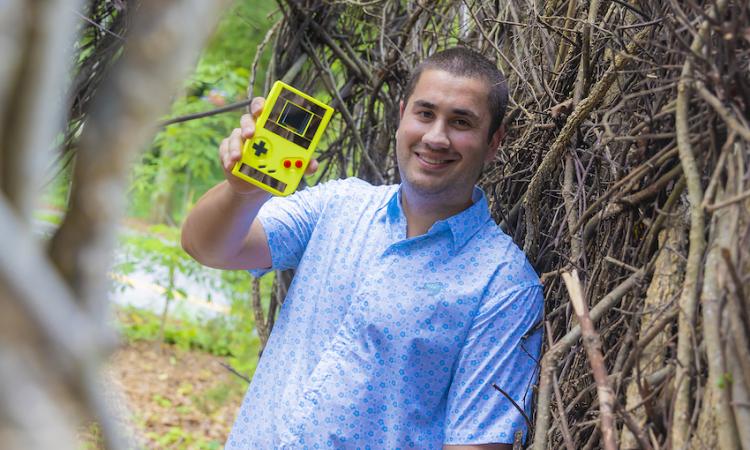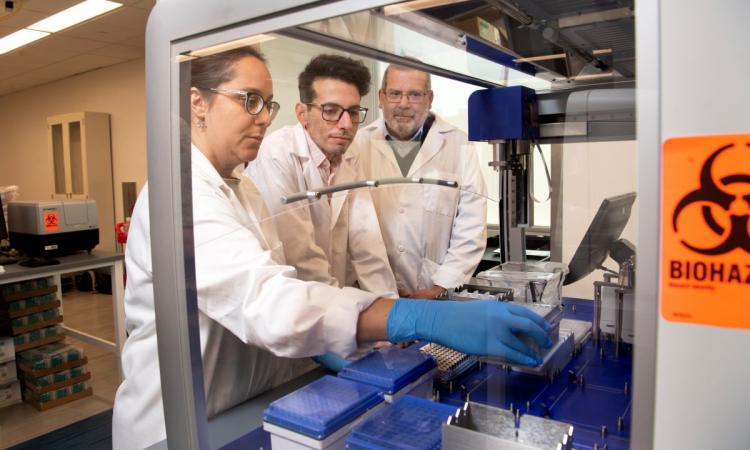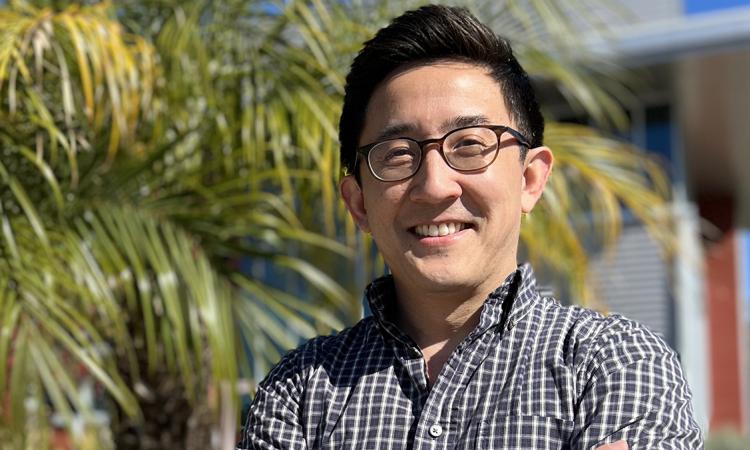Biomedical engineer Gabe Kwong will map cancer cell biomarkers, then engineer new sensors to hunt for multiple kinds of cancer.
(text and background only visible when logged in)
The Georgia Institute of Technology will lead development of a new generation of cancer tests capable of detecting multiple types of tumors earlier than ever with up to $50 million from President Joe Biden’s Cancer Moonshot initiative.
Led by biomedical engineer Gabe Kwong, the project will map the unique cellular profiles of cancer cells and leverage that knowledge to build new bioengineered sensors to detect those profiles. The goal is to create a new kind of multi-cancer early detection test that would allow oncologists to start treating the tumors sooner, when they’re still small and most responsive.
The funding announced Sept. 26 is from the new Advanced Research Projects Agency for Health (ARPA-H) and part of the Biden administration’s efforts to cut the cancer death rate in half in 25 years.
“The ARPA-H program is really designed to accelerate true blue-sky visions of what the field needs to solve in order to push medicine and health forward,” said Kwong, associate professor in the Wallace H. Coulter Department of Biomedical Engineering at Georgia Tech and Emory University. “This is what researchers like to do — we dream about a different future; about the technologies we need to develop to get there. I’ve been cultivating this vision for the last 10 years. Now there’s a mechanism to implement it and go at light speed. That’s pretty exciting.”

The core of Kwong’s work will be development of the Cancer and Organ Degradome Atlas, or CODA platform. The project will catalog the enzymatic activity of cancer cells — collecting their unique biosignatures — and the typical cellular profiles of healthy tissues. Together, that information will function like a traditional atlas, showing researchers both when cancer cells are present and where they’re located.
With that data, the multi-institutional research team will develop a suite of bioengineered sensors that can be deployed in the body and send up an alert when they recognize the unique cancer-specific markers. The metabolic changes in cancer cells would trigger the release of a synthetic biomarker in high enough levels to be detected in blood, urine, or feces and signal the appearance of early cancer lesions.
“We know that enzymes are very important and clearly dysregulated. But we don't have the right tools. We have not had a comprehensive map to really say, these are all the things that are fully dysregulated in tumor cells versus healthy tissue,” Kwong said. “Our project will be the first to systematically map out, with spatial resolution inside the body, what are the things that are really different between cancer cells and healthy cells.”
Early detection is possible now, but for only a handful of cancers. Kwong’s vision is to build a one-size-fits-all product that could do the work of those existing tests — mammograms, colonoscopies, and Pap smears, for example — plus detect cancer types currently without reliable tests for early detection.
Kwong will work with Georgia Tech researchers John Blazeck in the School of Chemical and Biomolecular Engineering and Peng Qiu in Coulter BME on the project. Their team also includes Tal Danino, a biomedical engineer at Columbia University, and chemist Min Xue at the University of California, Riverside.
The ARPA-H agreement is the third connected to Georgia Tech announced in recent weeks.
Emory-based Coulter BME Professor Philip Santangelo received the first tranche of funding from the agency — $24 million — for a project building a toolbox of mRNA drugs to activate or shut off specific genes to help the immune system fight cancer and other disorders.
Josiah Hester in the School of Interactive Computing is co-principal investigator of a Rice University-led effort to develop an implant to help the body better respond to cancer treatments.
“At ARPA-H, we recognize the urgency of the health challenges facing cancer patients and their families.” said ARPA-H Director Renee Wegrzyn, “and we are committed to funding truly transformative research that can improve health outcomes for everyone.”
(text and background only visible when logged in)
(text and background only visible when logged in)
Related Content
Computing Faculty Supporting Research That Could Cut Cancer Deaths in Half
Computing researchers are part of team developing a surgically implantable device that could be a huge step toward a cure for cancer.
BME Researchers Lead $24M Project Using mRNA to ‘Turn On’ Helpful Immune Responses
Philip Santangelo wants to build a toolbox of mRNA drugs to activate or shut off specific genes to help the immune system fight cancer and other disorders.
(text and background only visible when logged in)
Kwong using NIH Director's Pioneer Award to Develop Living Biosensors
BME researcher Gabe Kwong plans to engineer immune cells to become lifelong cancer sentinels.


